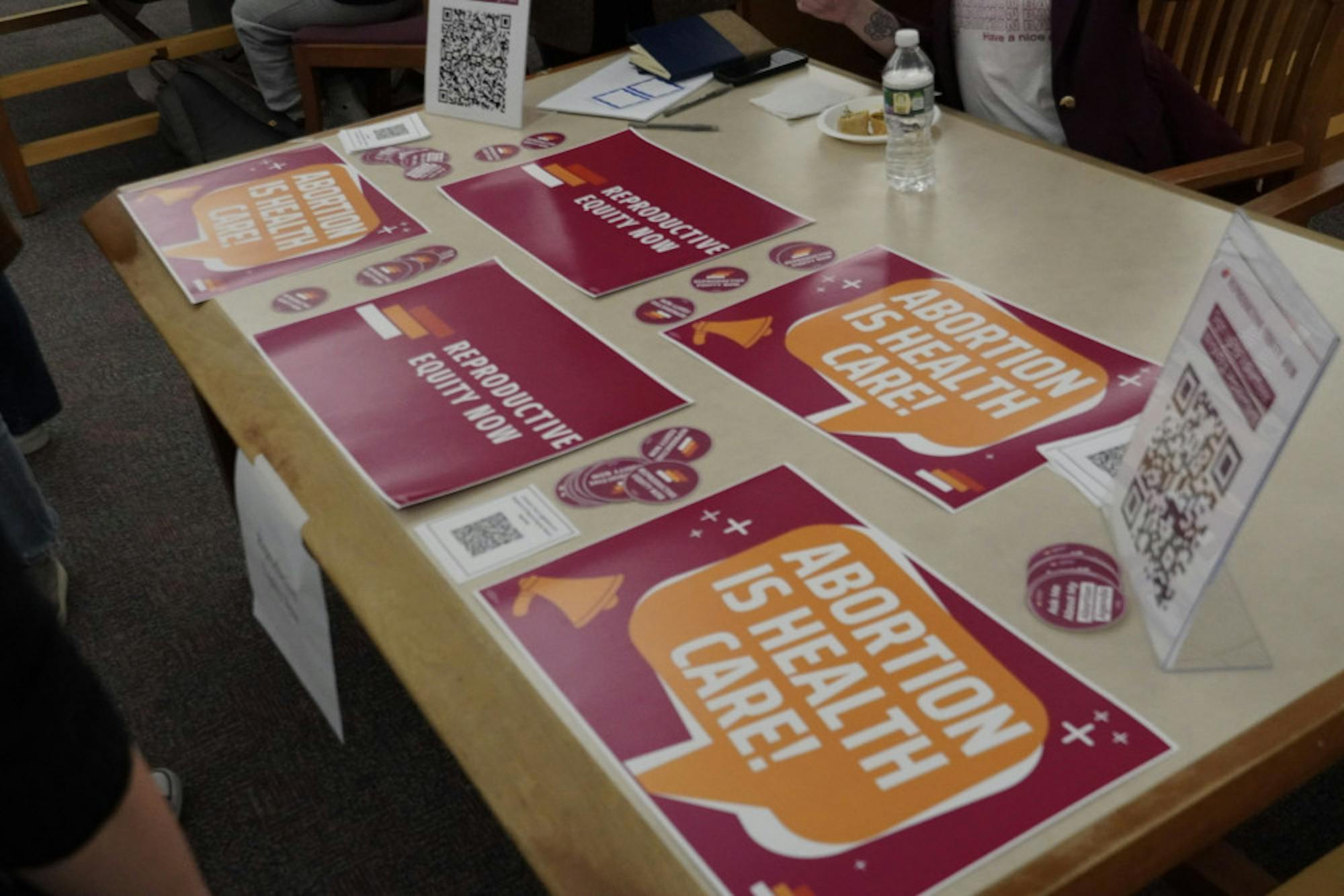The Experimental College on March 30 hosted its first-ever event exploring reproductive rights, entitled “Reproductive Freedom in the Wake of Dobbs.” The discussion featured perspectives from the legal, health care and educational intersections of the landmark Supreme Court case, Dobbs v. Jackson Women's Health Organization, which ended the constitutional right to abortion last year.
The panel featured Claire Teylouni, the government affairs director at the nonprofit Reproductive Equity Now; Dr. Laurent Delli-Bovi, an OB-GYN and assistant professor at Harvard Medical School; and Jessie Rossman, a managing attorney at the ACLU of Massachusetts. Each discussed the current state of reproductive equity within their respective fields.
Much of the discussion addressed the recent Alliance for Hippocratic Medicine v. U.S. Food and Drug Administrationcase in Texas, which threatens to overturn federal approval for mifepristone — a widely used abortion pill — and has become the latest high-stakes legal battle involving abortion since Dobbs. The case could result in a preliminary injunction that could, at least temporarily, force the FDA to take mifepristone off the market.
“[It is] the first time that a judge would order the FDA to remove approval over the FDA’s objections,” Rossman said.
Rossman also criticized the unilateral decision-making process involved in the case.
“This decision — it’s not going to be the last word — [is] trying to erect barriers to access reproductive healthcare throughout the entire country based on the decision of a single judge,” she said.
Delli-Bovi spoke on the medical facts of mifepristone. “Abortion, whether it’s surgical or medical, is just outrageously safe,” she said.
Delli-Bovi, who has served as medical director of five family-planning facilities and is the director of Women’s Health Services, an abortion and reproductive health center, also reflected on the state of reproductive affairs in the last couple of decades.
“The high point of reproductive rights was 1973, it was Roe v. Wade, and ever since it’s been an absolute steady descent, from the Hyde Amendment to [Planned Parenthood v. Casey], which just allowed for all kinds of restrictions to be placed on an abortion by states,” Delli-Bovi said.
Teylouni said that as abortion care is restricted, mortality rates will rise.
“[Maternal] mortality rates are just going to keep increasing as [states] keep implementing restrictions on abortion care,” she said. “They say that their intent is to protect life and pregnant people but … there is a direct correlation between states that are banning abortion and states with an [increased] maternal mortality rate.”
The ramifications for maternal health are not equally felt — access to non-medication abortions depends on the person’s ability to find a provider that offers the procedure, economic ability to take time away from work and the means to physically get themselves to an abortion provider and back, according to Delli-Bovi.
“Immigrants, non-native speakers, minors, people of color … it’s always the most vulnerable people who are affected,” Delli-Bovi said.
Rossman pointed to the way Dobbs has changed the way people discuss abortion rights.
“The flipside of [Dobbs]is that … the ways in which you are able to access abortion … depends on where you live and the resources that you have, and that was already true,” Rossman said. “All of our rights are interconnected. … [Dobbs] made the conversation [of reproductive equity] much more explicit and open.”
Teylouni elaborated on Rossman’s point, discussing the recent push toward increasing awareness and access to abortions for a wider range of socioeconomic backgrounds in the wake of Dobbs.
“One good thing we saw about some of the restrictions … was the possibility for [abortion pills] to be dispensed in pharmacies,” she said. “That’s a path that is starting to remove the silos that have made people question whether abortion care is healthcare in the first place.”
Teylouni said she hopes that abortion care is discussed more as a form of health care.
“My ideal vision … is that abortion care isn’t this unique thing that’s separated from all other different kinds of health care, [and that] you are able to talk about it and access it with your doctor without barriers,” Teylouni said.
In closing the event, Sarah Lee Day, reproductive rights advocate and the instructor for The Right to Abortion ExCollege class, noted the long-existing gaps in abortion access.
“Reproductive freedom has always been elusive for large portions of the population and the Dobbsdecision has only exacerbated that,” Day said. “The ramification of what the Supreme Court did in Dobbs will undoubtedly be felt for years to come.”
Day also praised panelists for their work.
“We need now more than ever … people who are willing to come and think critically about rights and justice, who are willing to approach problem-solving with an eye for intersectionality,” she said. “Each and every single person in this room … has a place in the movement.”






